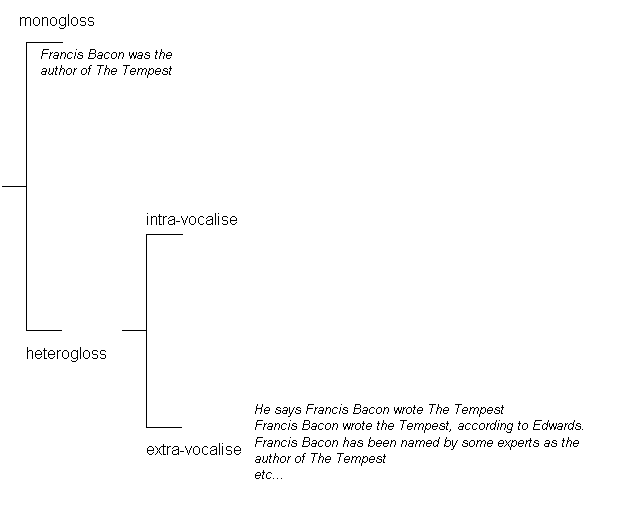


Under the heteroglossic approach, attribution is unproblematically a key resource for acknowledging heteroglossic diversity - it provides a resource by which the heteroglossic diversity of the current social context can be directly inscribed in the text. By attributing an utterance or proposition, the text explicitly marks it as contingent, as but one of a number of possible utterances, as located at a specific point in the network of inter-subjective positions put at risk by the texts current context of situation. The utterance is marked as sourced by a particular individualised social-subjectivity. Since that source is external to the text, attribution serves as one mechanism for multi-vocalising the text, for constructing the text, in Bakhtin's terms as dialogic, as emanating from multiple sources and reflecting multiple points of view. I term such attributing resources `extra-vocalisation', in recognition of the way the introduce externally sources voices into the text.

Figure 3: extra-vocalisation